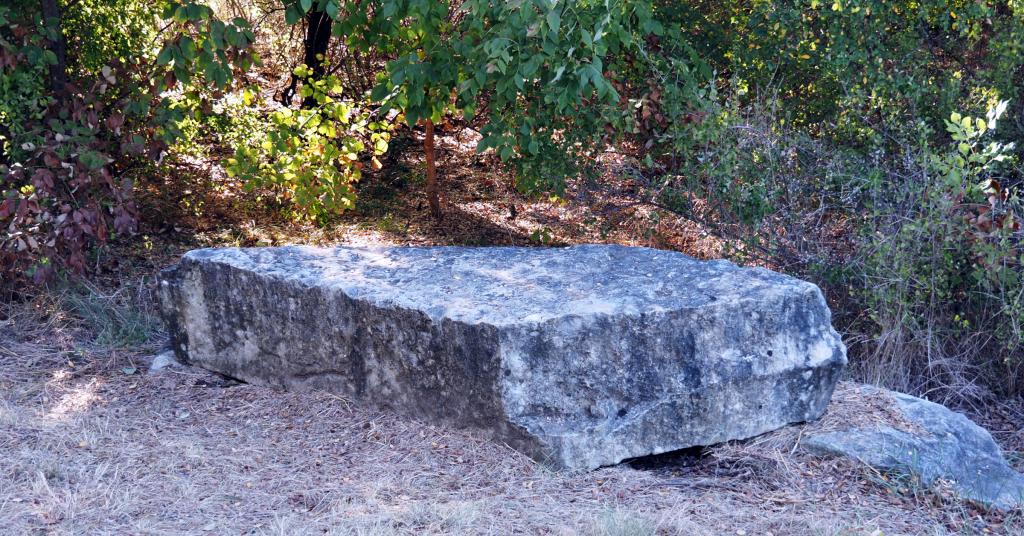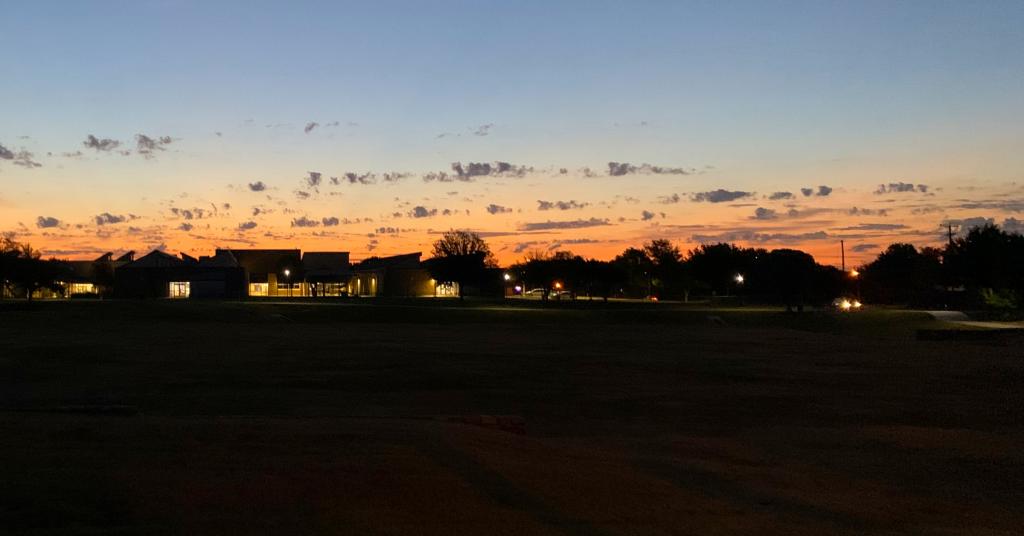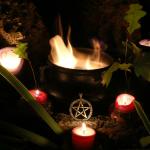Something on the Patheos Evangelical channel grabbed my attention earlier this week. It’s a post titled The One Falsifiable Religion by Richard E. Simmons III of the blog Reliable Truth. He was pushing his new book on arguments for the existence of the Christian God (which, to be clear, is a perfectly appropriate thing for a blogger / author to do) and he said this:
“Christianity depends on certain historical facts to be true … Prove they never happened and Christianity is fraudulent.”
I know plenty of Christians who disagree with that, but as a Pagan, I do my best to stay out of the internal debates of other religions.
But when someone makes a claim to universal truth – when they claim to possess the One True Religion – that’s an argument that invites responses from all corners.
There are more possibilities than Christianity or atheism
In his post, Simmons says:
“I have attempted to demonstrate … how theism is logical and fits the world we live in.”
And on that, he and I are in complete agreement. I’ve written about this on numerous occasions over the years, including this post from 2019 Why I Believe in the Gods.
But theism is bigger than Christianity. Theism is bigger than monotheism. Theism includes polytheism… and for several millennia, that was all it included.
A few years ago a Baptist preacher knocked on my door on a Saturday morning. I had a bit of time, so I talked to him, and I let him know up front that I’m a Pagan Druid. He started talking about how the beauty of Nature pointed toward the Divine, and how there’s something more than just this material world. He was surprised when I agreed with him.
He didn’t know what to do with a Pagan, so he was using his playbook for atheists. But I’m not an atheist, I’m a theist.
He didn’t convert me and I didn’t convert him. But I like to think he walked away from that conversation knowing a little more about the breadth and depth of religion and religious practice.
My post here is not intended to be a point-for-point rebuttal to Richard E. Simmons’ post. Rather, it’s a response to three common theological errors I hear from conservative Christians. I want to demonstrate why they’re errors, and how we can do better.
Starting at the beginning, then Deus ex machina
It might be better to call this a metaphysical error rather than a theological error, but it’s an error nonetheless.
It’s understandable to begin a religious investigation at the beginning of time. Over the last 150 years or so, science has gone a long way in explaining the origins of the universe and the beginnings of life on Earth. We can “run the movie back” to a fraction of a second after the Big Bang. But we don’t know what happened at the Big Bang, and we really don’t know what – if anything – happened before the Big Bang. There are some ideas, but at this point they’re more speculation than hypotheses.
This leads some to insist there must be a transcendent creator God, and then to assume that God is the Christian God. This is an assumption, not a conclusion supported by evidence and logic.
As our atheist friends argue, if the universe was created by a God, then where did that God come from? And if the answer is that he always existed, then a better approach is simply to say that the universe always existed.
How Paganism can do better: the origins of the universe are best understood mythically.
I think it’s likely that the ultimate origins of the universe are not just beyond our knowledge, but beyond our capacity to know. The stories we tell ourselves about the origins of the universe – including the story of the Big Bang – help us understand our place in the cosmos. They tell us that even though our lives are a mere blip on a cosmic time scale, we’re a part of everything that ever was or ever will be.
I would love to be proven wrong. I would love to know the precise literal explanation for the existence of everything. But I don’t, and I don’t think I can, and rather than assuming some God did it in Deus ex machina fashion, we can take comfort in knowing we’re a part of it all, however it came into existence.
Starting at an arbitrary point in time
This point is a rebuttal of Simmons. In his post, he says:
“As we survey the host of world religions, I am convinced there is only one place to start and that is with the historical figure of Jesus Christ.”
How convenient. People believed in Gods, worshipped Gods, and experienced Gods for thousands of years before the birth of Jesus (assuming Jesus was a historical person, which I think is likely but far from certain). But hey, let’s ignore all those people and the Gods they worshipped and start with the mythical beginning of my religion.
Now, before we get too smug, Pagans are sometimes guilty of this. I see too many people (mainly Heathens, but they’re not the only ones) who say “I want to practice the religion of my ancestors.” Fine – that’s a noble goal. But then they grab what they know (or what they think they know) about the religion of a few ancestors in certain places during a very narrow period of time. They ignore their recent ancestors who were Christians, and they ignore their earlier ancestors who practiced tribal religions whose Gods (or at least, Their names) are lost to us forever.
If you want to build a case for the existence of Gods, begin at the beginning, with the earliest indications of religious behavior in human and pre-human species.
How Paganism can do better: build a religion for here and now.
It’s good to know where you came from. It’s better to know where you are, and where you’re going.
Religion is not a search for truth – that’s the job of philosophy and of science. Religion is a collection of beliefs and practices to help us live together in respectful, reciprocal relationships with our Gods and spirits, with each other, and with the natural world. We are inspired by the beliefs and practices of our ancestors, but we must build a religion that is meaningful and helpful to us here and now.
And that brings us to the third theological error.
Ignoring all other cultures, religions, and traditions
On the Amazon page for his book, Simmons says “it is important to know whether God exists or He does not exist. There is no third option.”
But there is a third option: the Christian God exists, but He is not who and what conservative Christians say He is. He is, as polytheists propose, simply one God among many.
The aboriginal people of Australia practice a religion that goes back 50,000 years. The remaining tribal religions of Africa are likely even older – that they are being wiped out by Christianity and by Islam is a crime against humanity. We don’t know what religious rites were practiced at Göbekli Tepe 11,000 years ago, but it wasn’t Evangelical Christianity.
And today there are 1.9 billion Muslims, 1.1 billion Hindus, 500 million Buddhists, and about a million modern Pagans.
And yet, according to Simmons and those like him, the truth was revealed to one small group of people in one tiny part of the world a mere 2000 years ago. A God who is infinitely wise and cares very deeply that people think the right things about him ignored all those people for all that time. And now everyone should worship only this God in only this way.
It doesn’t seem likely.
How Paganism can do better: draw inspiration from around the world.
If we are to be ethical people, we must respect religions and cultures that are not our own. But no culture owns Truth. Wisdom presents herself in many forms, urging us to learn from her however we can.
We look at the world’s many religions and we see a closeness to the Earth, and so we honor the Earth as our Mother. We see a reverence for ancestors, and so we honor our ancestors in ways that are meaningful to us – and to them.. We see many different people worshipping many different Gods in many different ways, and so we worship the Gods who call to us in the ways They instruct us to honor Them.
What we can know, and what we cannot know
Like Pascal’s Wager (which is intellectually dishonest and theologically bankrupt), arguments such as those described here take incredibly complex issues and oversimplify them. Then they cherry-pick the evidence that supports their preferred positions while ignoring the far greater evidence that weighs against them. These are theological errors.
Pagans can do better. So can Christians. So can everyone else.
It is impossible to prove or to disprove the existence of any Gods. For those of us who have experienced Them, such proof is unnecessary. For those who have not, the question is academic. It would be nice to know, but it’s not essential. Only certain forms of Christianity place ultimate importance on affirming the “right” beliefs.
Believe what your heart and your mind tell you is true. Explore those beliefs as deeply as you can, and then live them out in your daily life. Honor your Gods and ancestors. Treat other persons around you – both human and other-than-human – with dignity and respect.
And never forget that for as much as we know – and we know so much more than our ancestors could have dreamed – some things remain a mystery.
I’m thankful for mysteries.





















